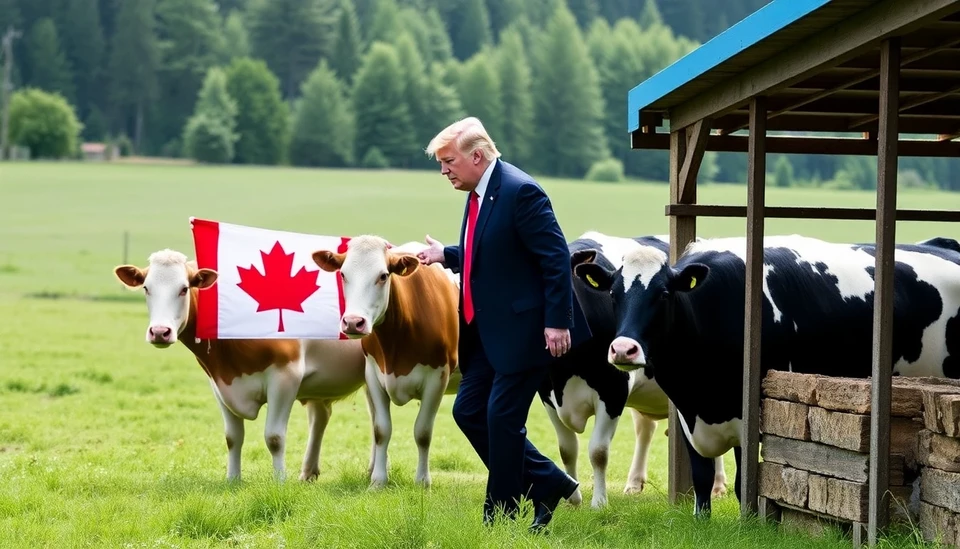
In an unexpected twist on trade relations, former President Donald Trump has signaled that he may soon impose tariffs on Canadian dairy and lumber imports. This potential move could significantly impact the already strained economic dynamics between the United States and Canada, stirring concerns among industry stakeholders and policymakers alike.
Speaking at a recent rally, Trump emphasized his inclination to take decisive action against Canada, harking back to the contentious trade battles of his previous administration. He reiterated the stance that the U.S. is being unfairly disadvantaged in trade with its northern neighbor, highlighting issues with Canada’s dairy pricing and lumber production practices that he claims undermine U.S. manufacturers.
The former president's remarks have reignited discussions about the terms outlined in the United States-Mexico-Canada Agreement (USMCA), which was supposed to ease trade tensions and create a more equitable trading environment between the three nations. However, Trump’s possible tariffs could violate the agreement's guidelines and strain diplomatic relations further.
Canadian officials have responded cautiously, urging for constructive dialogues rather than escalating tariffs. The Canadian government maintains that its dairy and lumber sectors are crucial components of its economy, and any such tariffs would have adverse effects not only on Canada but also on U.S. consumers experiencing increased prices.
This announcement comes amidst a broader economic climate marked by inflationary pressures and concerns over supply chain disruptions. Critics of Trump’s proposed tariffs argue that imposing additional costs on trade would only exacerbate the issues consumers are facing, potentially leading to increased prices for goods in the U.S. market.
Moreover, industry experts are closely monitoring the ongoing trade discourse, fearing that new tariffs could trigger retaliatory measures from Canada. Such a situation could backfire, ultimately stunting growth in sectors that rely heavily on trade between both countries.
As the situation develops, it remains to be seen whether Trump will follow through with these tariffs or if negotiations will seek to avert a potential trade war. For now, both U.S. and Canadian industries are left to navigate an uncertain landscape, weighing the implications of possible new tariffs on their operations and market strategies.
Trade analysts advise closely monitoring the situation as it evolves, suggesting that stakeholders prepare for a range of outcomes depending on the future actions of both Trump and Canadian officials. With the political landscape shifting rapidly, any changes in policy could have significant repercussions for numerous sectors across North America.
As this story unfolds, it is clear that the stakes are high, not just for trade between the United States and Canada, but for the broader economic stability dependent on harmonious international relations.
#TrumpTariffs #Canada #TradeRelations #USMCA #EconomicImpact #DairyIndustry #LumberIndustry #InternationalTrade
Author: Daniel Foster




